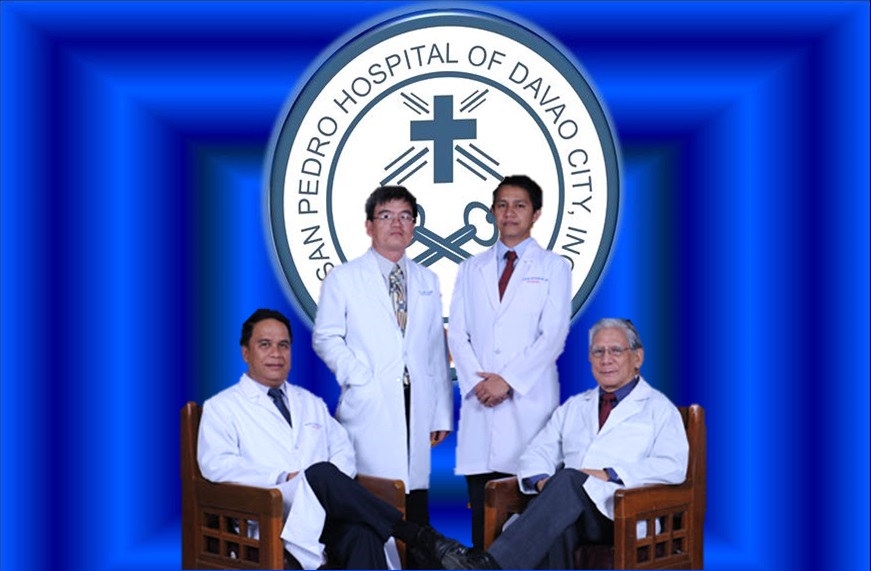Medical Services
Categorize into different departments such as anesthesiology, diagnostic imaging, family medicine, internal medicine, obstetrics & gynecology, pathology, pediatrics and surgery. Each department includes description of its section and also the responsibility of the physicians towards their duty and to the patients. In addition, there are services being offered for more details and inquiries. Name of medical services is listed such as active consultants, visiting consultants and residents for references.
Anesthesiology
An Anesthesiologist treats pain in surgical patients and watches over the vital signs of individuals under anesthesia in order to make sure that vital body functions such as heartbeat, blood pressure and breathing rate remain stable. An anesthesiologist may work in a hospital emergency room or intensive care unit. Some anesthesiologists work with patients who need chronic pain relief. Others specialize in labor and delivery, providing pain relief during birth.
Family Medicine
Family Medicine is the foundation of a family’s health care and wellness. Also known as primary care doctors, Family Physician provide comprehensive, continuous health care to all members of the family throughout the course of their lives. Family physicians care for patients of all ages, from newborns to the elderly, men and women, and all medical problems. The specialty integrates biological, clinical and behavioral sciences. Some family physicians provide maternity care. They are trusted experts in the community who care for adult women and men, regardless of age, as well as infants and children. Family Physicians become partners with their patients over many years. By building relationships based on communication and respect, these physicians gain a deeper understanding of the whole person, including the range of physical, emotional, and socioeconomic factors that influence a person’s health status.
When they have patients with more serious conditions, or conditions outside their expertise, family doctors can refer patients to specialists or health care facilities to give the specific care required.
Internal Medicine
Physicians and doctors of Internal Medicine treat and manage diseases and conditions that affect the heart, lungs, kidneys, liver, urinary track, brain, spinal cord and other organs comprising the human biological system. Internists create treatment plans that incorporate therapy, medication, nutritional changes or surgery to manage patient illnesses and injuries. In hospitals and healthcare facilities, doctors of internal medicine monitor patients’ recovery and refer them to specialists based on their assessment of patients’ progress and condition.
Obstetrics and Gynecologists
An obstetrician/gynecologist, or OB-GYN, is a physician who specializes in the health of the female reproductive system (gynecology) and manages women before and immediately after pregnancy (obstetrics).
Pregnancy Matters
-
- As an OB-GYN, professionals tend to the needs of women through pregnancy to childbirth. The doctor’s obstetrics duties include monitoring the mother and fetus to ensure both are healthy during the nine-month process. In addition, through the use of an ultrasound, the doctor can detect the presence of multiple births or birth defects, such as Down’s syndrome. They are also responsible for delivering the baby, either naturally or by cesarean section, and making sure the baby and mother are healthy.
Keeping Women Healthy
-
- The OB-GYN treats and diagnoses ailments specific to the female reproductive organs. Their focus includes examining patients for breast, cervix and ovarian cancers, treating urinary tract and pelvic disorders, and hormonal disorders. Some OB-GYNs perform minor laser surgeries. Pap smears and breast exams are the most common tests OB-GYNs provide. Treating sexually transmitted disease is also a duty. In addition, their family planning duties include prescribing birth control medications and recommending fertility drugs.
Pathology
Pathologists typically work in research and laboratory settings and rarely ever with patients. Pathologists receive specimens and samples from physicians during surgery or examination and use the many tools of pathology to analyze samples for diagnosis of disease. Pathologists may also perform autopsies, although autopsies are usually performed by forensic doctors.
Pediatrics
Pediatrics is the area of medicine devoted to preventing and treating illness and disease in children under the age of 18. Pediatric doctors, also called pediatricians, are the medical professionals who specialize in this field.
Pediatricians perform diagnostic tests and conduct examinations to diagnose illnesses in children and then prescribe medications or other treatments based on the diagnosis. Pediatricians also perform well-child check-ups to screen for any health problems and counsel parents about immunizations, nutrition and wellness.
General Pediatric doctors serve as primary physicians to children and may refer patients to pediatric specialists. Among the specialties in the field of pediatrics include those who treat conditions of the heart (cardiologists), digestive system (gastroenterologists) or kidneys (nephrologists)
Radiology
Radiologist work in hospitals, clinics or independent diagnostic centers and operate a wide variety of equipment. Cardiovascular and interventional technologists are involved in complex procedures which study the vessels and vascular structures of the heart, brain and other organs and parts of the body. They perform high-level diagnostic and invasive procedures. Ultrasound, MRI, CT Scan and Radiologic Technologists operate equipment that can produce pictures or images used to diagnose and monitor diseases and have many applications in obstetrics and gynecology. Nuclear Medicine technologists perform procedures that can diagnose or treat diseases such as cancer and heart disease.
Surgery
A Surgeon is a physician who has trained specifically to operate on patients in need of a variety of acute surgical procedures. Surgery involves making an incision on the patient’s body and repairing or removing an internal part of the body, and then closing the incision for optimum recovery. Some surgeons are specialized and fellowship-trained in a particular type of surgery, while other surgeons, called “general surgeons” are broader in scope but do not perform highly specialized types of surgery such as brain or heart surgeries.
Types of Surgeons and Average Compensation for each:
- General Surgeons: Perform appendectomies, hernia surgeries, and other types of surgeries including liver, spleen, intestinal, and some head, neck, chest surgeries, excluding hearts.
- Orthopedic Surgeons: Orthopedic surgeons, or “orthopods” specialize in surgery of the joints, bones, tendons, and muscles. This includes arthroscopy, joint replacement or reconstruction, bone fusions, operating on broken or shattered bones, and more
- Neurosurgeons: Neurosurgeons specialize in brain surgery and spinal cord surgery.
Plastic Surgeons Plastic surgeons are well known for their cosmetic procedures such as liposuction, breast augmentation, face lifts, and more. Plastic surgeons also work with victims of accidents or burns to reconstruct damaged areas.
Dental
A doctor of Dental Medicine, or dentist, cares for the mouth, gums and other areas near the mouth. A dentist is a professional who specializes in diseases and conditions of the human mouth, maxillofacial area and other associated areas. They evaluate the condition of the mouth and/or surrounding areas and make diagnoses and recommendations for prevention and/or treatment.









